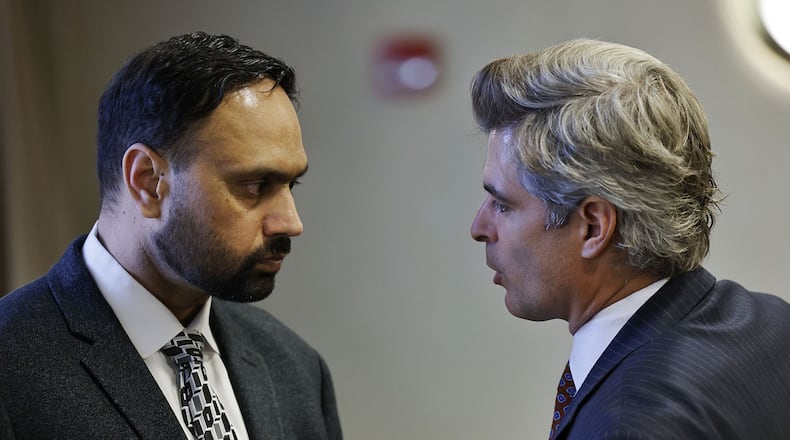Singh is accused of killing his wife, Shalinderjit Kaur, 39; his in-laws, Hakikat Singh Pannag, 59, and Parmjit Kaur, 62; and his aunt by marriage, Amarjit Kaur, 58, at their residence on Wyndtree Drive.
Singh and his attorneys maintain his innocence, saying another person is or persons are responsible for the mass family shooting. They are planning to present that evidence at trial.
Butler County Common Pleas Court Judge Greg Howard will preside over the trial beginning today, but proceedings will be held in the recently completed super courtroom that has seating for more spectators and an upgraded sound system.
The family members were all dead when West Chester Police arrived at the Wyndtree Drive after Singh called 911.
Singh was outside in the stairwell covered in blood crying that his family was bleeding. He was questioned for hours by police, but released.
He was indicted in August 2019 and arrested in Connecticut.
The father of three young children who was a self-employed truck driver running his own company before his arrest, Singh is being held without bond in the Butler County Jail. He is a native of India but has been a United States citizen since 2009.
Howard has ordered 150 prospective jurors for the first day of selection and another 150 for the second day if necessary. Voir dire is scheduled to begin at 9 a.m. The trial is expected to last three weeks.
Prosecutors have filed a motion for the jury to view several locations near the crime scene at 4562 Wyndtree Drive, Apt. 154 including the parking lot to the west side of the building, the breezeway on the first floor walking up to the apartment, the mulch area at the end of the breezeway facing the pond and the back porch area.
Other areas near the pond that police searched the day after the homicides are also part of the jury view request.
It appears the defense will present evidence of an alternative suspect during the trial and file motions to make the court compel the appearance of several witnesses who are “material to identify an alternative suspect.”
Prosecutors have filed a motion block the alternative suspect evidence or, in the alternative, hold a prior hearing.
In a motion, prosecutors asked the judge to exclude the defense from introducing evidence of an alternate suspect because, “the defendant has failed to proffer any such evidence much less establish the requisite nexus between any alleged alternate suspect and the charged murders.”
Ohio courts apply case law routinely that alternate suspect evidence is only admissible if the defense can produce evidence that tends to directly connect the other person with the actual crime, the prosecution says in its motion.
The defense responded, saying the state’s motion is a misapplication of the Ohio rules of evidence “(and) flagrantly disregards both procedural and substantive due process, particularly by attempting reverse the presumption of innocence.”
Subpoena issuing began last month and includes police officers, Ohio Bureau of Criminal Investigation agents, keepers of records from banks, United Airlines, cell phone companies, and local, Indiana and Kentucky residents.
The prosecution lists more than 80 witnesses that may be called during the trial that police officers, Ohio Bureau of Criminal Investigation agents, keepers of records from banks, United Airlines, cell phone companies, and local, Indiana and Kentucky residents.
Hotel rooms have been booked and security arranged if the jury should require sequestration. By law, in a death penalty case, the jury must be sequestered during deliberations. If the defendant is convicted they are also required to be sequestered while deliberating a penalty recommendation following the mitigation phase.
If the defendant is convicted, the jury will consider recommendation of one of five penalties, including death, life in prison without parole, 20 years to life, 25 years to life or 30 years to life. It is up to the judge to decide whether or not to follow the jury’s recommendation and ultimately impose the sentence.
About the Author


